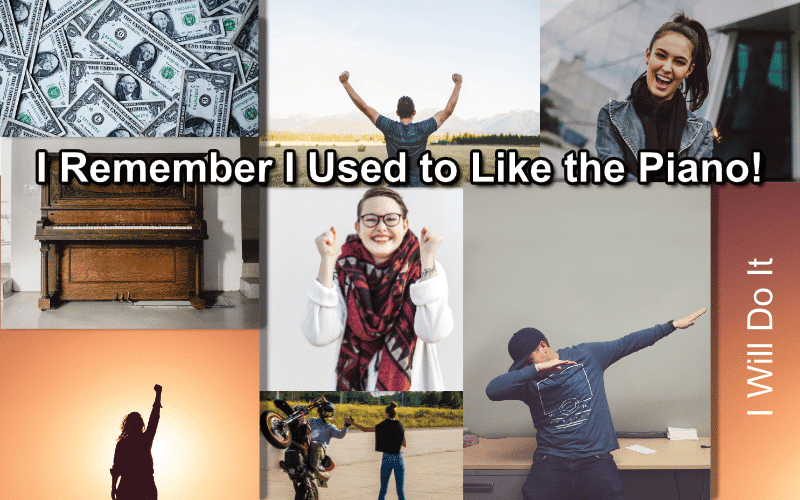Coming back to piano after a long break is refreshing, is exciting and, undoubtedly, is a brand new experience.
But in order to return to piano, something happens inside us. We felt the need to hear ourselves playing this marvellous instrument and we anticipate the warmth of the keys underneath our fingers. Everything is so refreshing getting back to our previous love.
But piano is like any other physical endeavour that requires conditioning. Conditioning of our bodies and mind — Yes, you read it right; we should condition both our bodies and our minds to withstand the rigours of practising. Because, let’s face it, in order to get back to piano we need to encounter this dreaded horror that is called “practising”. And where else to find the way to do practising properly and feel as guilty as possible at the same time other than in PianoPractising.com? Thank you for reading this article! (With a horrid smile on my fat face)
Condition of the bodies first
Now, I said we need to condition our minds and bodies. But what comes first? Is it the minds that we need to train, making them instruct our bodies properly? Or is it our bodies that will dictate our holistic approach to the piano through our minds? (I have no idea to be honest with you, but since this is a website that is edited by me, I should find the solution. Otherwise, how am I going to be considered an expert on the piano, even though I am far from it?) Let’s carry on.
We need to condition our bodies first — basically, we need to teach our hands and legs to get back doing the right thing once again. And we do it by starting our practising sessions slowly and deliberately. We start from scales (always). Just a couple of scales on our first few weeks of practising. We play them slowly. With the arpeggios. Really slowly. Our warming up should last for at least five to ten minutes before tackling any repertoire.
Also, even though the notion of coming-back-to-piano applies to all levels of pianists, more often than not, the ones to come back to the piano are not the professionals. The ones to return from a long break are us, the amateurs — the intermediate pianists. That means, Czerny 30, Duvernoy and even Beyer are in order. Those warming-up composers will reset our technique and make it last longer in our practising sessions. And, of course, those composers will get us ready to play the “actual” music; the music one plays in concerts. You wouldn’t play Czerny’s Op. 740, No.1 in a concert, would you? Even though it is music, after all. Well, I have played from that Opus the G minor as an encore, but that’s just me. I mean, look at the ludicrousness of this website — what would you expect?
So, yes: Body comes first. The body will teach our minds to withstand the heaviness of practising. If we cannot last in practising, we won’t come back on anything. We need to be able to teach our minds that enjoyment comes from proper conditioning of our bodies. It’s like in marathon running and its physiological demands. You enjoy the marathon (mentally) after you have learned how to run without exhausting yourself, basically.
And that’s all there is to it. No holistic philosophies, no nights with cheese and wine talking endlessly about the philosophy of Spinoza, nor alternative solutions and other mumbo-jumbo. Just sheer, honest, sensible practising. This will make you come back to piano with a vengeance.
Copyright © 29th of December 2021, by Nikos Kokkinis
========
I am indebted to the following artists the images of whom I used to create the composite image used in this article: This composite image tries to convey our false priorities in life.
THANK YOU:


